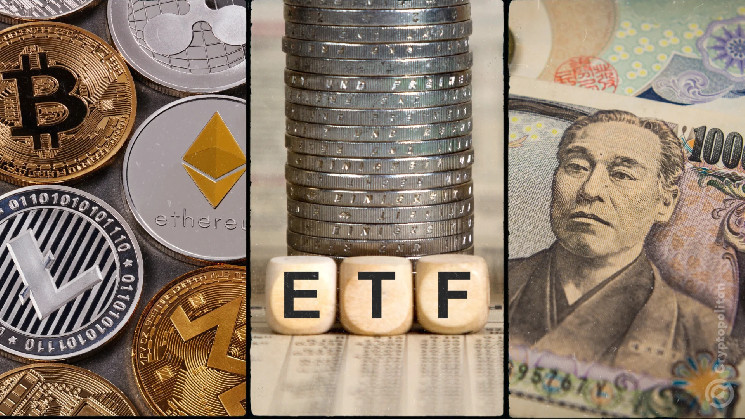Japan continues to be not able to approve Bitcoin or every other crypto exchange-traded funds (ETFs), regardless of international markets like Australia, the U.S. and Hong Kong transferring ahead with theirs.
The nation is thought for its ambitions to guide in crypto, but regulators stay cautious, particularly on the Ministry of Finance. Name it the Mt. Gox PTSD however they’re now skeptical about crypto generally.
Oki Shiozawa, from Sumitomo Mitsui Belief Asset Administration, stated it appears nearly inconceivable to persuade Japan’s monetary authorities to open the door for crypto ETFs anytime quickly.
Regulation stays tight. The Monetary Providers Company (FSA), which approves monetary merchandise, could be very conservative.
Tax benefits pushing for change
Crypto ETFs supply large tax advantages. Japan’s crypto buyers face a excessive tax burden—as much as 55% on basic crypto investments. These earnings are handled as miscellaneous earnings.
If crypto ETFs have been allowed, they’d fall beneath capital good points tax, which maxes out at round 20%. The shift would encourage extra buyers to become involved, as ETFs even have tax advantages like carrying ahead losses.
One factor holding Japan again is its historical past of large-scale crypto scandals. Incidents just like the collapse of Mt. Gox in 2014, which worn out lots of of thousands and thousands of {dollars} in Bitcoin, left a mark.
One other scandal concerned DMM, additional deepening mistrust. These occasions created a cautious environment amongst regulators and buyers alike.
Household places of work and company enterprise companies could also be prepared to maneuver forward with crypto ETFs, however Japan’s conventional asset managers and monetary establishments are doubtless not going to, at the least for a very long time.
Some corporations put together for the long run
Regardless of this sluggish progress, some corporations are getting ready for the eventual approval of the ETFs in Japan. Franklin Templeton and SBI Holdings introduced in July that they have been teaming as much as create a digital asset three way partnership that may embody the event of crypto ETFs.
SBI has already partnered with UK-based Man Group and U.S. non-public fairness agency KKR on related initiatives. Nomura, a significant monetary companies group in Japan, has additionally created a subsidiary to deal with crypto.
Japan has a historical past of embracing crypto early on. It was one of many first international locations to control exchanges by means of its Fee Providers Act (PSA) in 2016. The legislation acknowledged cryptocurrencies as belongings and compelled exchanges to register with the FSA, for higher safety and client safety.
Further laws have been launched in 2018, with the formation of the Japan Digital and Crypto-assets Trade Affiliation (JVCEA), a self-regulating physique for strengthening oversight.
In 2019, extra reforms have been handed, additional tightening laws on crypto exchanges. By 2022, new measures have been centered on bettering asset storage and capital necessities for exchanges.
Crypto continues to be accepted as a method of fee by many retailers within the nation (round 100,000 companies).
Japan’s crypto market in 2024
Japan’s crypto market has remained resilient regardless of international fluctuations. Spot buying and selling volumes on exchanges have proven energy.
In fiscal 12 months 2022, spot buying and selling volumes hit roughly 28.5 billion Japanese yen, whereas leverage buying and selling surged to 97.4 trillion yen earlier than ultimately dropping. By the tip of 2023, round 3.7 million energetic crypto accounts have been reported within the nation.
Crypto earnings are taxed at charges starting from 15% to 55%, relying on earnings ranges. The best fee applies to earnings over 200,000 yen ($1,377). In distinction, inventory earnings are taxed at a most fee of 20%. This has triggered requires tax reform inside the Japan crypto group.
In September, the FSA proposed a tax reform to decrease crypto tax charges beginning in fiscal 12 months 2025. This proposal will deal with cryptos extra like conventional monetary belongings.
Political help for this variation is rising. Yuichiro Tamaki, the chief of the Democratic Get together for the Individuals, has pledged to scale back crypto taxes to twenty% if elected.


